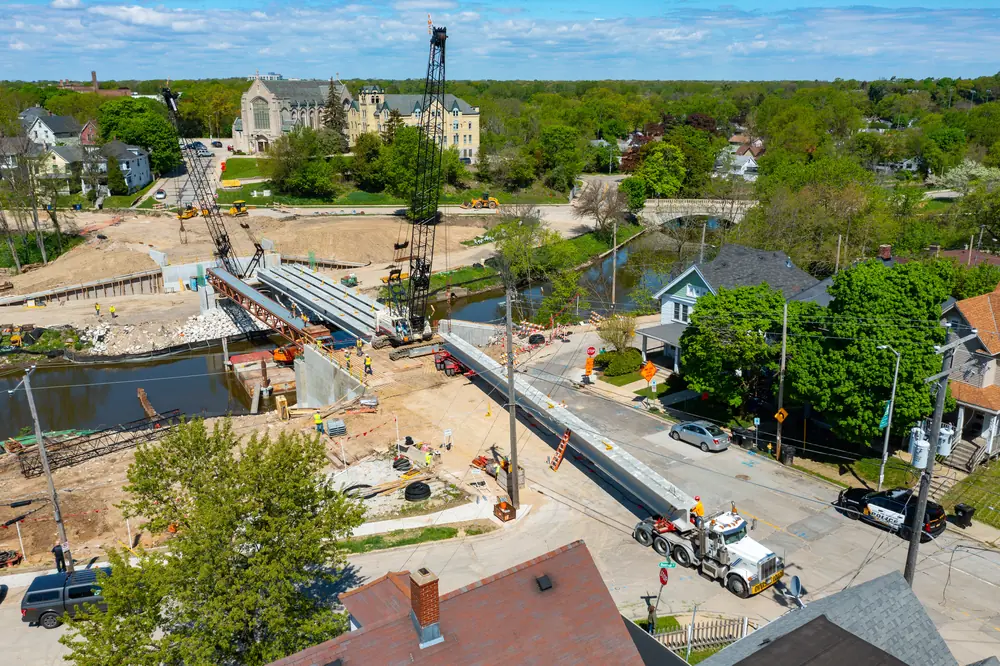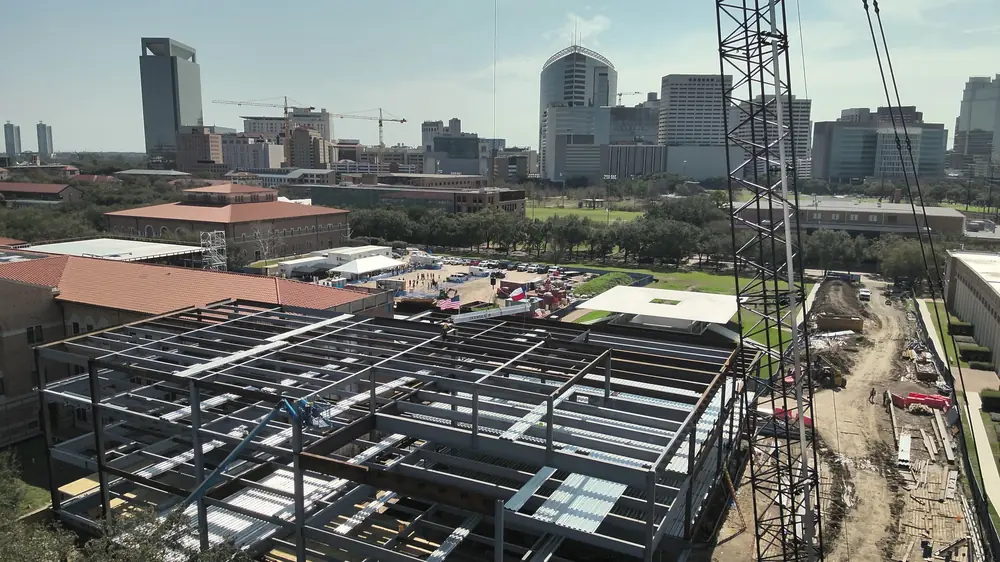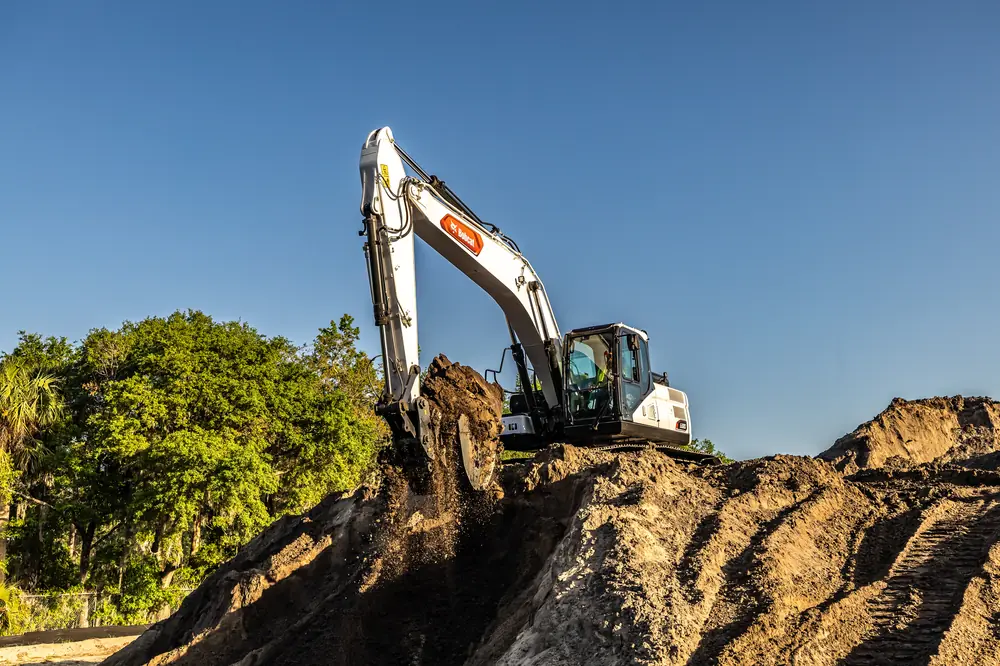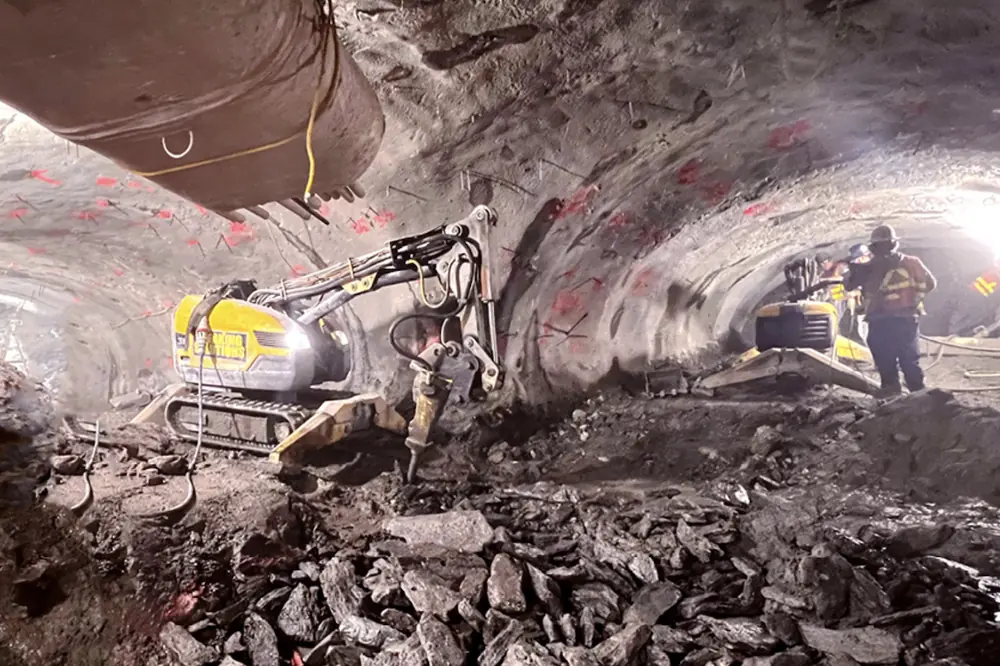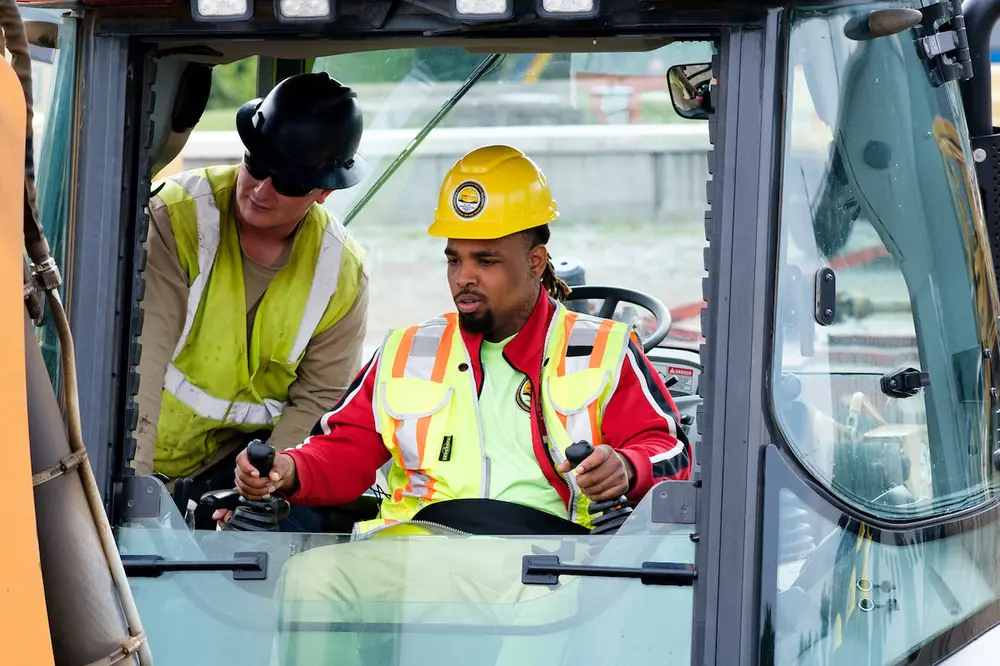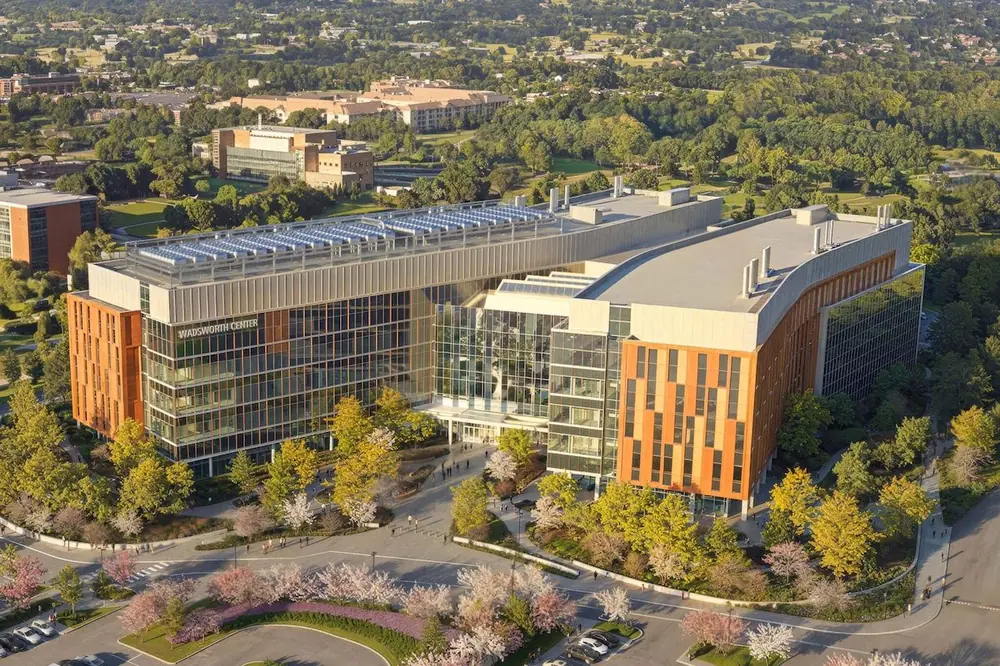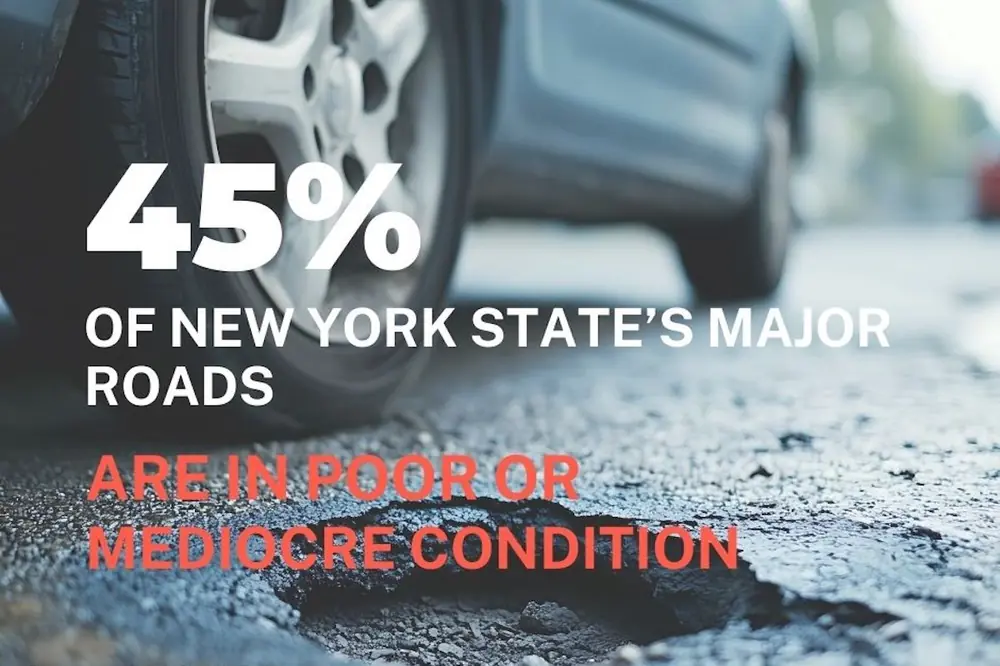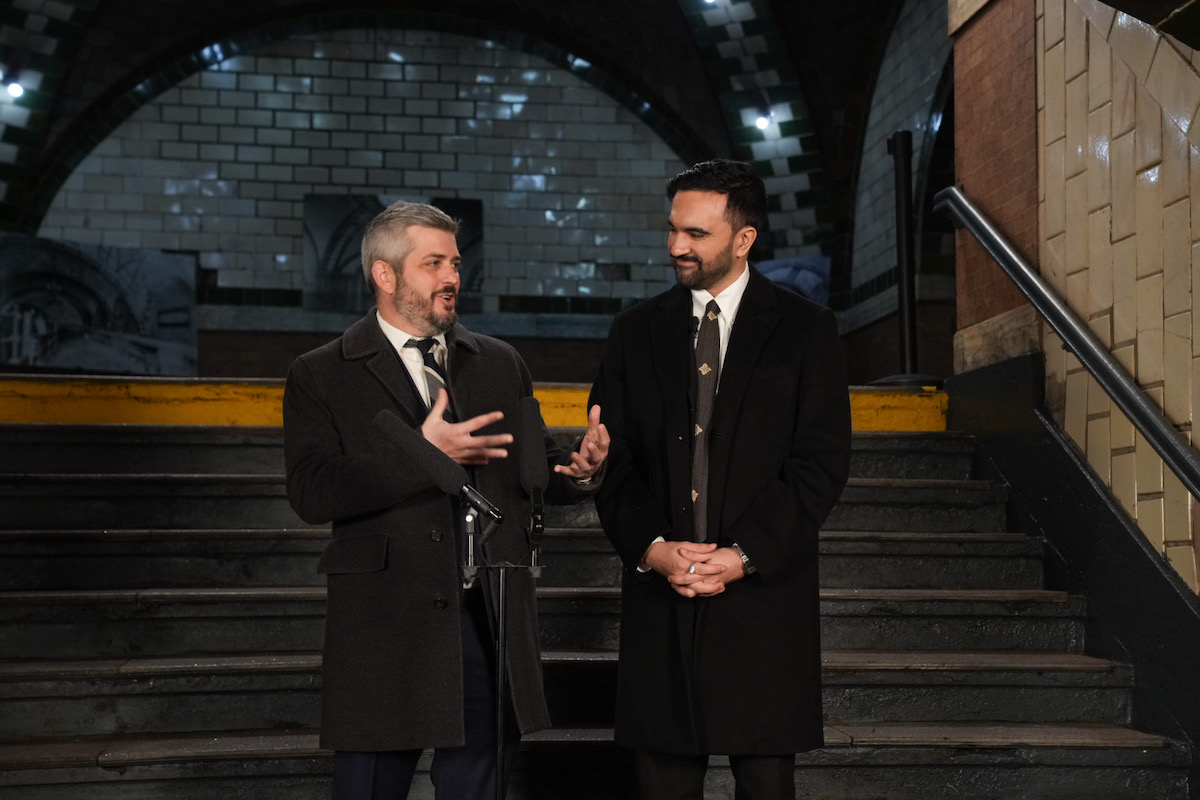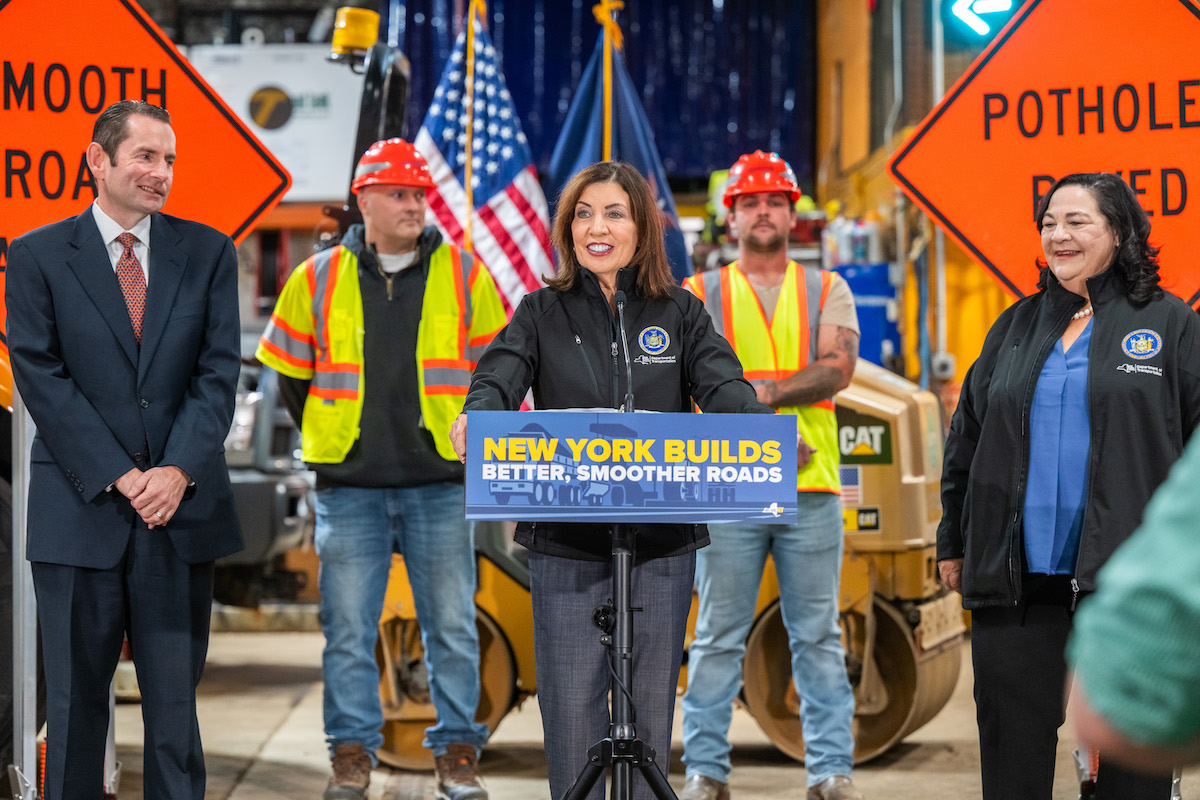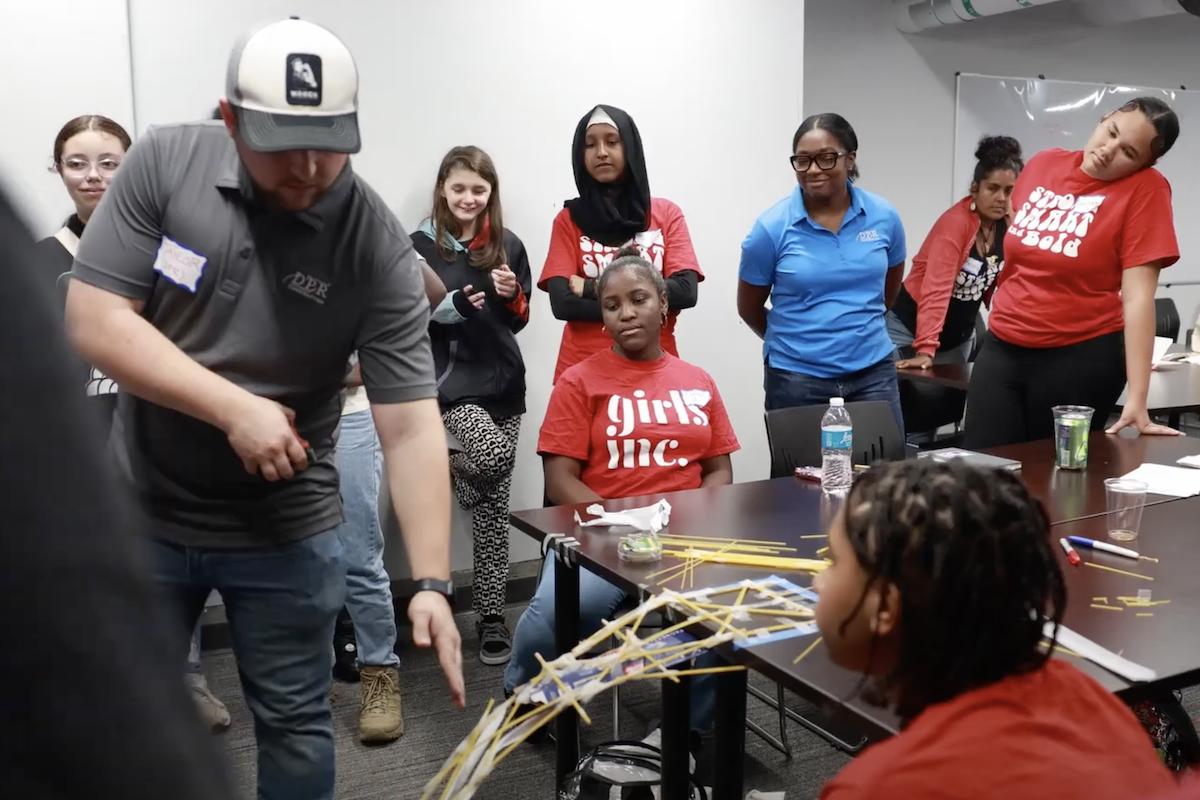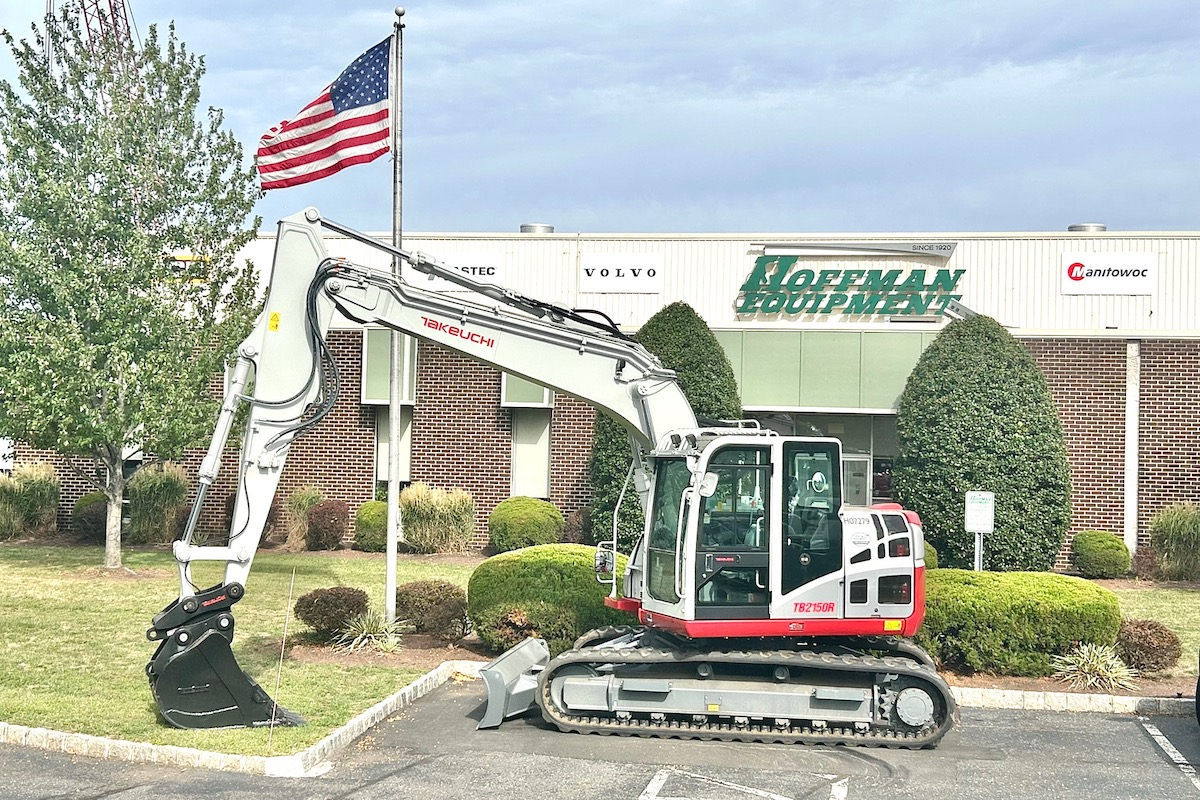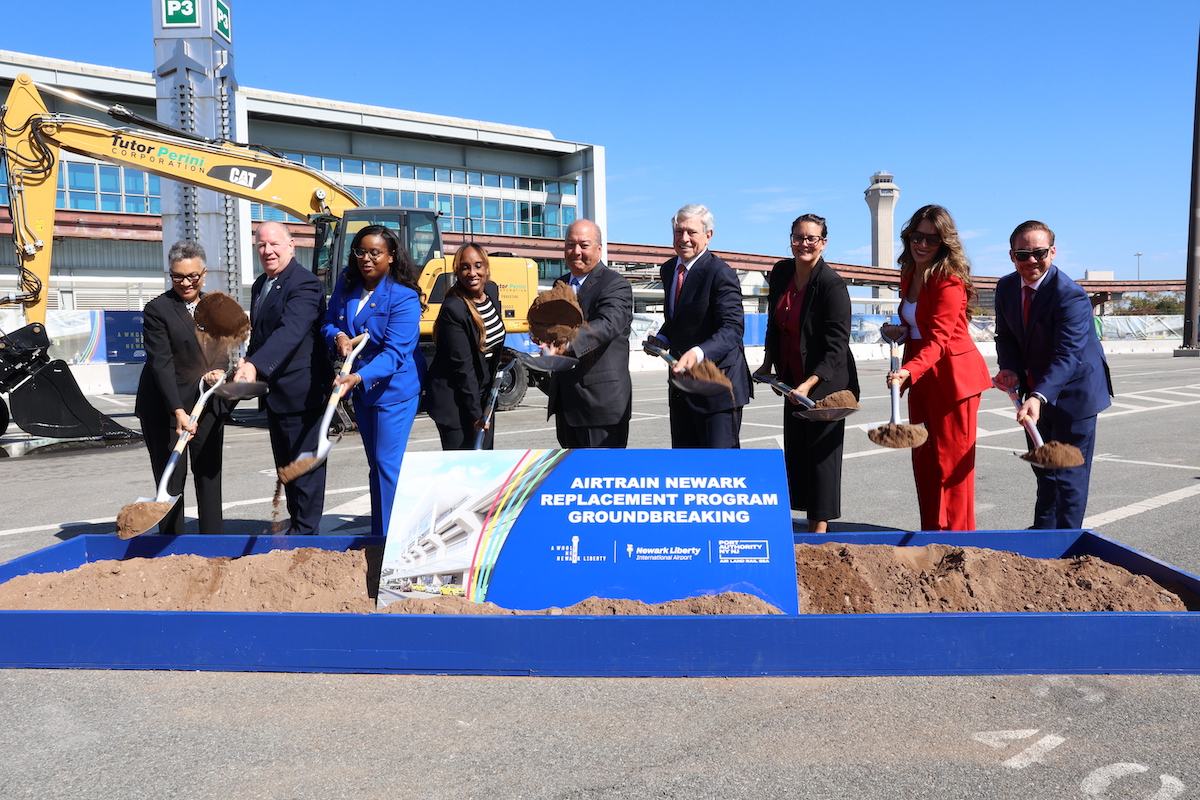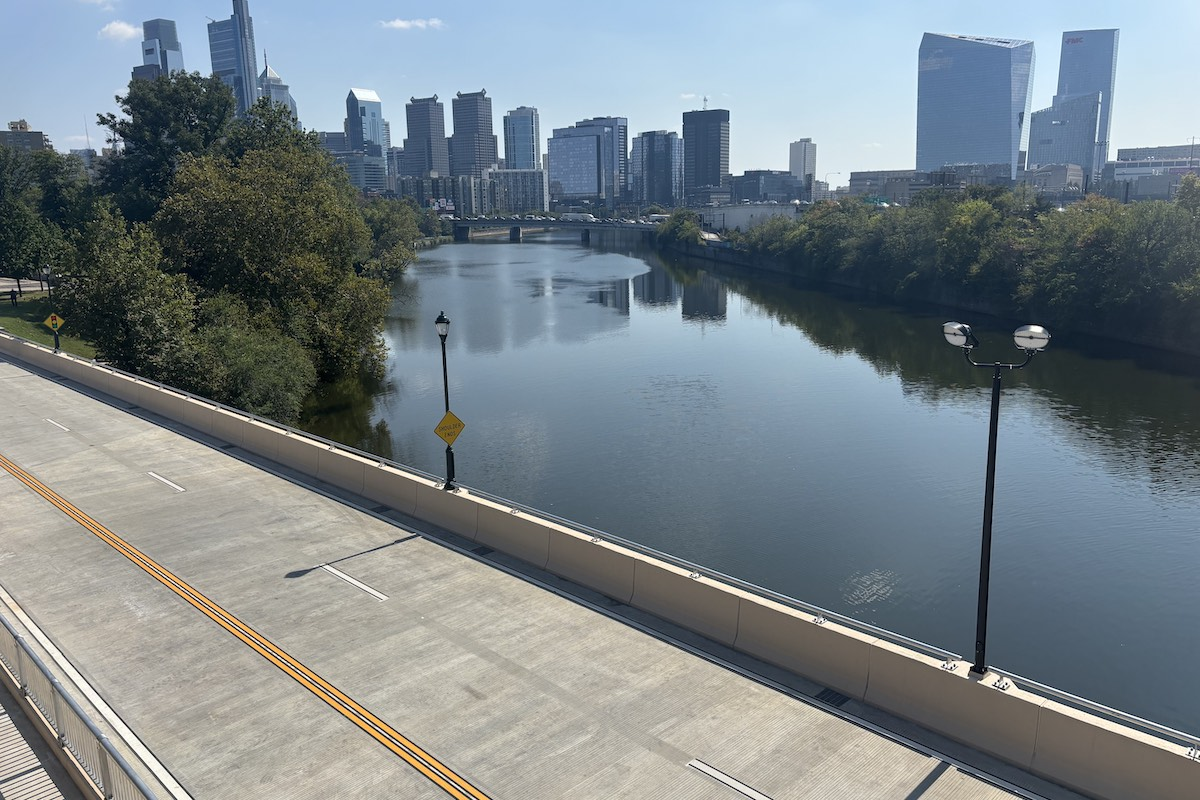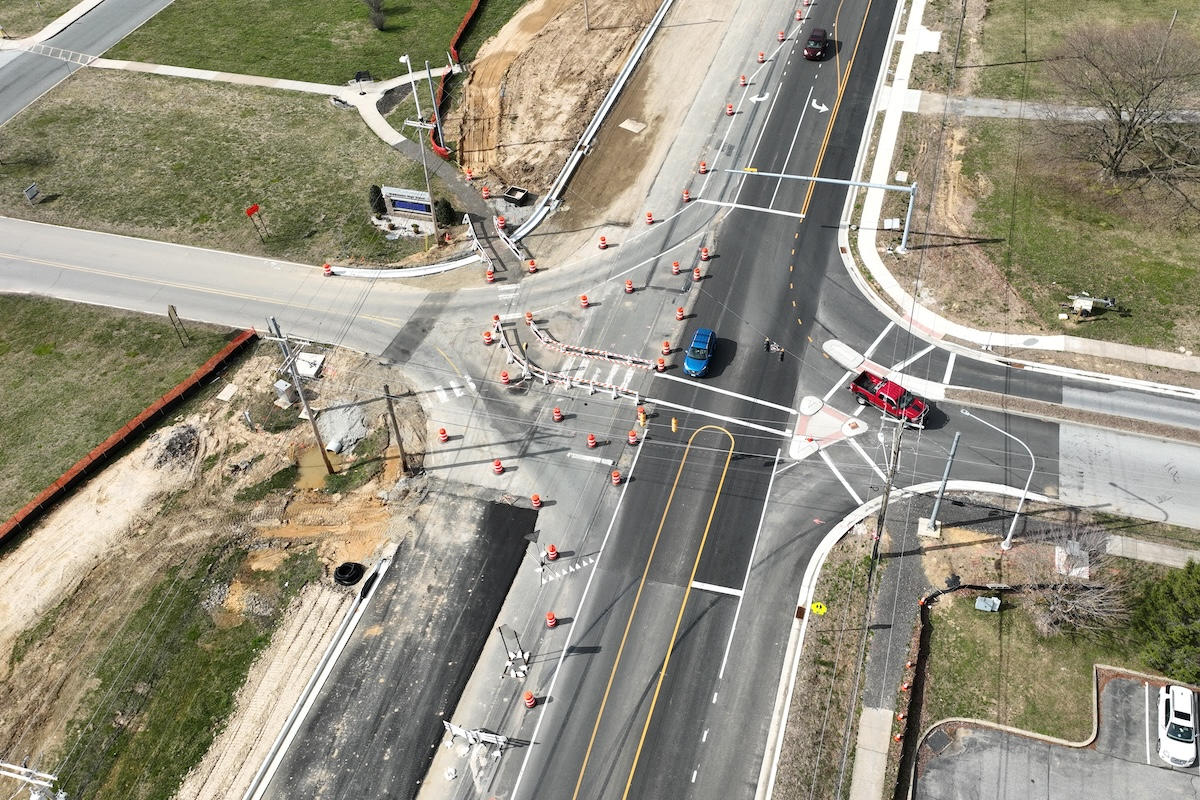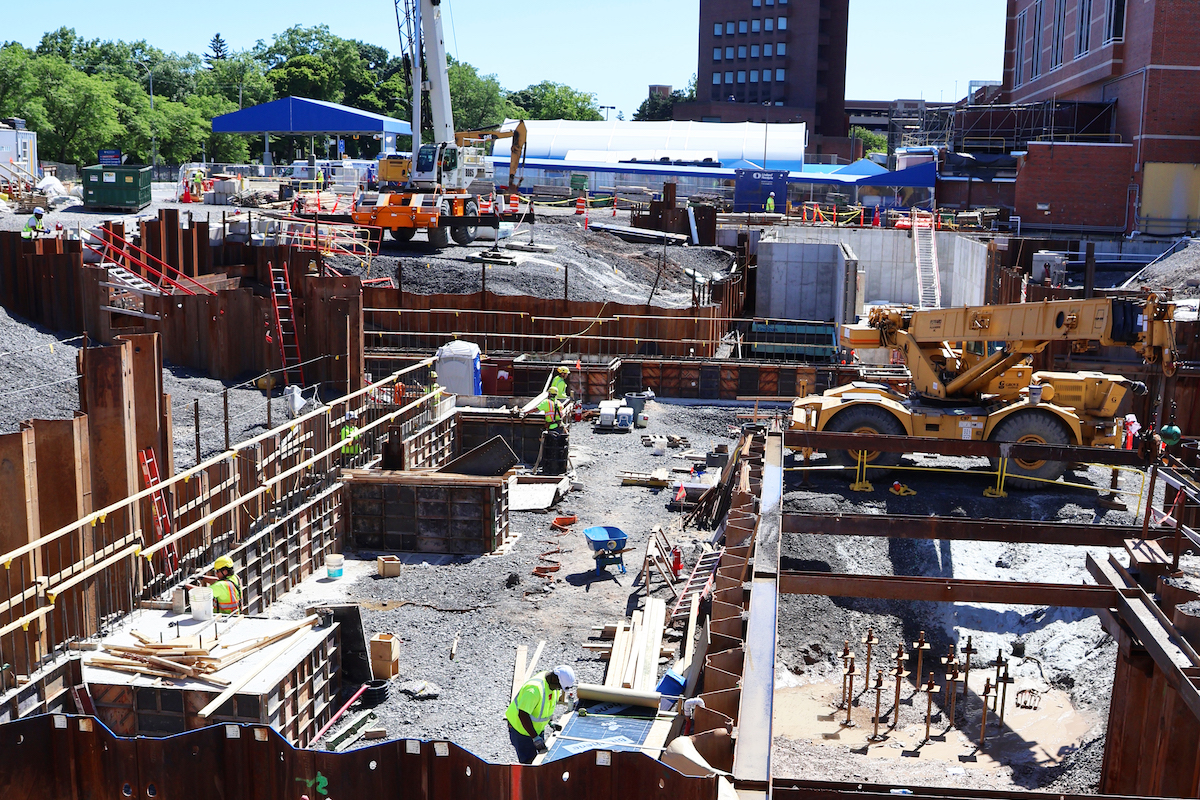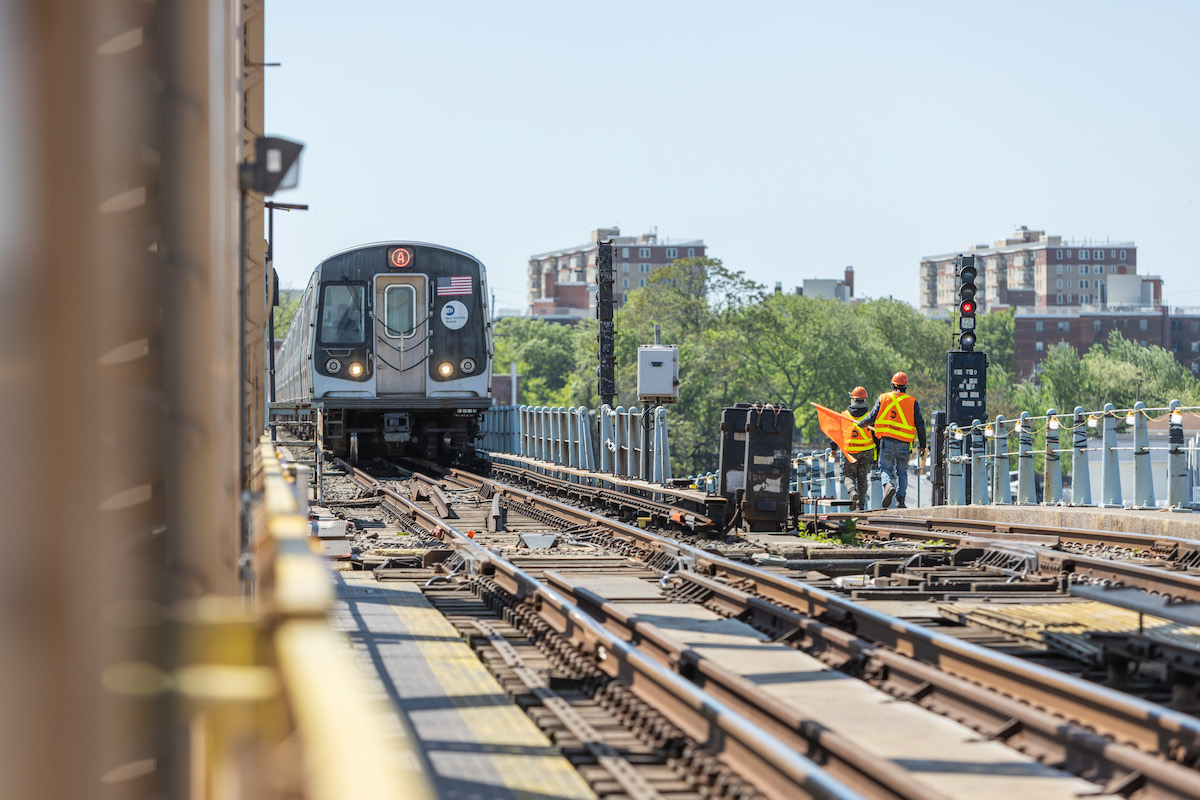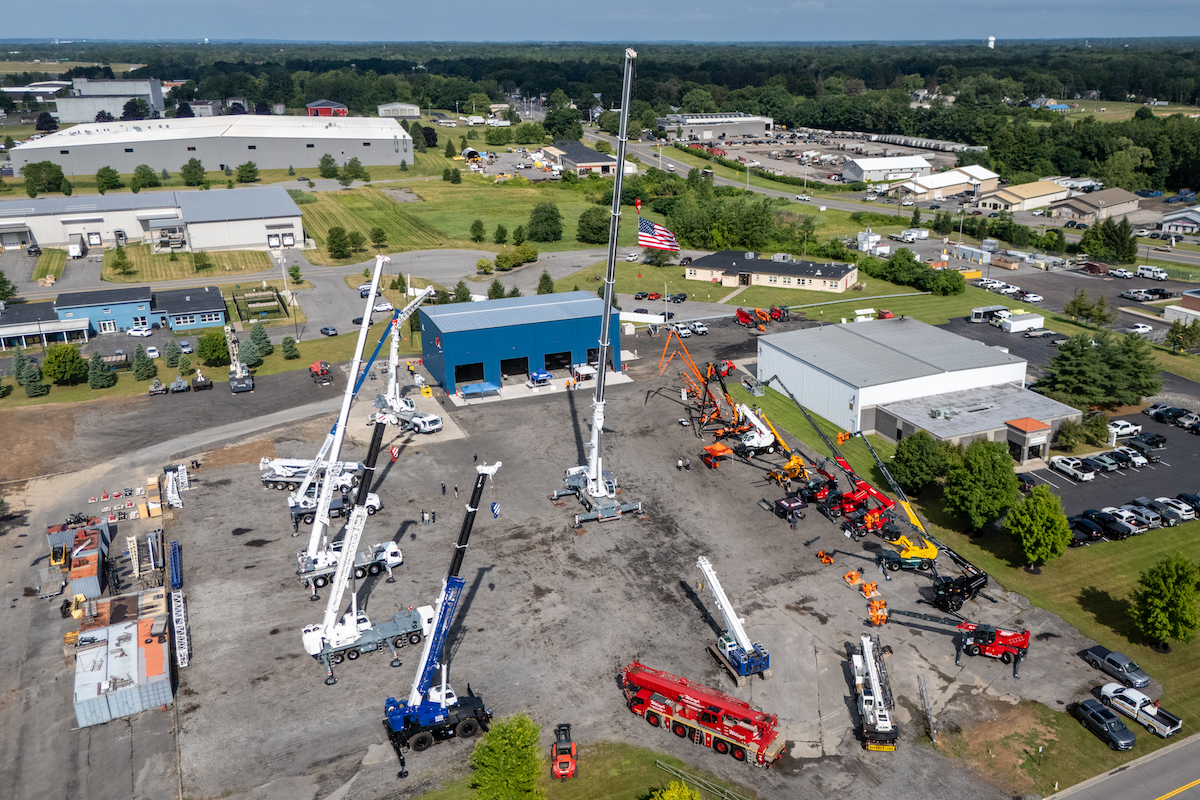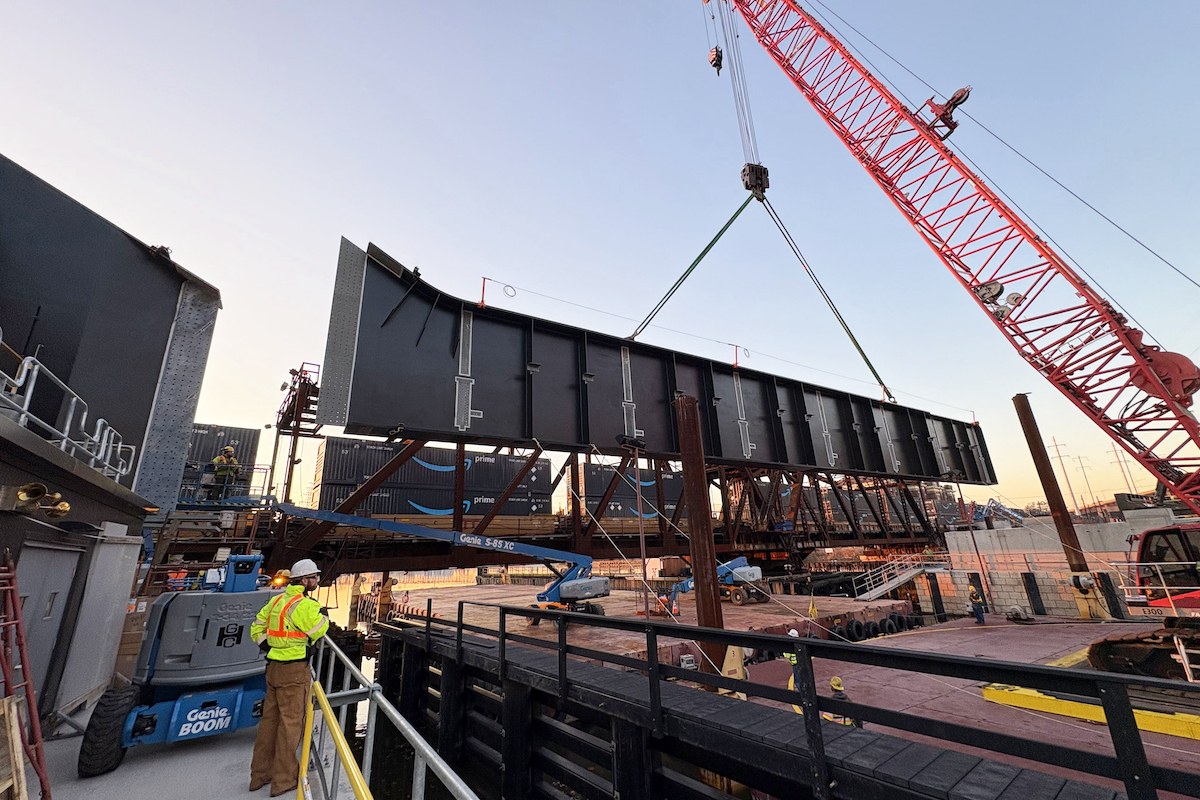The extensive, two-phase project has required the complete closure of I-255 to all traffic for one full construction season – but the closure is enabling the project to be completed more quickly, more safely, and at a significantly lower cost. The first five-month phase, which wrapped up in mid-June, covered a 4-mile stretch from I-64 to Collinsville Road; the second phase on the southern portion will stretch from I-64 to Illinois 15 and is scheduled to be complete in November.
As Joel Cumby, IDOT District 8 Construction Engineer, relates, “The project consists of rehabilitating and resurfacing approximately 7 miles of I-255 between I-55/70 and Illinois 15 in two sections separated by I-64, with significant bridge repairs, safety improvements and drainage upgrades. The work is essentially the same in each section. The north section has 10 bridges to repair including the one complete deck replacement while the south section has eight bridges to repair. The south section contains more of the barrier wall and lighting elements. Since this project was closely coordinated with our Operations (Maintenance) bureau, it was decided that the north section should go first considering it had more significant deterioration than the south section.
“This section of I-255 was originally built in the 1980’s and has not seen any major improvements since it was originally constructed. For the last several years IDOT and the Missouri Department of Transportation (MoDOT) have been working together to develop and coordinate improvements to the transportation infrastructure in this region. We understand that even though we’re two separate states, the transportation networks on both sides of the river are interconnected and safe, reliable transportation is critical to the economic success of the entire region. IDOT and MoDOT continue to work to improve the infrastructure throughout the region and this project is just one piece of a much larger puzzle.”
The contract was awarded for $67.3 million and has a completion date of November 25. The primary contractor is a joint venture between The Kilian Corporation and Keeley & Sons, Inc. Cumby reports that the joint venture has also secured a diverse team of local subcontractors and trucking firms to accomplish the large volume of work, and that approximately $13 million worth of work is being accomplished by disadvantaged business enterprises.

| Your local Trimble Construction Division dealer |
|---|
| SITECH Allegheny |
| SITECH Northeast |
IDOT Program Development staff is in charge of project design, overseeing two design consultants: Horner & Shifrin, Inc. and Oates Associates.
“To construct this project under traditional staging methods we would have had to upgrade the shoulders in order to shift traffic onto them; there would have been the need for extremely long runs of temporary concrete barrier to provide positive protection for the workers. There also would have been numerous reconfigurations of the traffic control and traffic patterns throughout the project, in addition to the various ‘shadowed’ pavement markings resulting from the various reconfigurations – both of which could have been confusing to the motorists.”
He adds that under traditional staging the existing pavement would not have been able to withstand the stresses of all the traffic being confined to just one lane, and would have resulted in emergency closures with no warning and no defined detours.
Cumby continues, “Closing one direction at a time was not feasible due to the challenging configurations that would have been required at the interchanges and the confusion that would have resulted for the motorists.
“A full closure was the safest, fastest, most economical, and best option. Full closures are only possible due to the availability of detours and alternate routes. Not all interstates have the supporting infrastructure to allow for this option, but this area of the region does and has several multilane facilities that can be used as alternate routes.”

| Your local Trimble Construction Division dealer |
|---|
| SITECH Allegheny |
| SITECH Northeast |
Says Cumby, “We’re providing media updates to let motorists know which routes are being overused and which routes are maybe being underutilized and can could take more capacity.” he said.
He adds that the project is on schedule and IDOT was able to use reduced traffic that resulted from the COVID-19 pandemic to do some of the patching on the southern part of the project, as well as other District 8 projects. “Pre-pandemic, the Average Daily Traffic for the North section was 54,600, which includes 7,250 trucks. The ADT for the South section was 57,400, including 8,700 trucks. As of June 30, traffic is still down 10 percent to 15 percent in this area, but we saw a drop of almost 30 percent at the peak of the pandemic. We were able to take advantage of the decreased traffic volumes to extend into the south section, while the north section was closed, to perform some necessary pavement and bridge repairs without impacting the schedule of the project.
“On June 13th we switched over from the north section to the south section, signaling that the project is 50 percent complete and the contractor is on pace with their aggressive schedule to complete this project in early November.”
As Acting Illinois Transportation Secretary Omer Osman has pointed out, while Illinois is the sixth largest state and the transportation hub of the nation, it had not had a comprehensive capital plan since 2009. As a result, Illinois infrastructure was in dire shape with a $30 million maintenance backlog. The state was also in danger of losing federal funds due to historically insufficient funding commitments by the state and deteriorating system conditions.
“With Governor J.B. Pritzker’s leadership and bipartisan support of the General Assembly, Rebuild Illinois was signed into law in 2019,” said Osman. “This historic and bipartisan capital program gave Illinois its most robust capital plan in nearly a decade and allowed IDOT to get back into the business of building a premier transportation system across Illinois. Rebuild Illinois was not only the largest capital program in the state’s history, it’s also the first one that’s truly multimodal. Every aspect and mode of transportation in every part of Illinois will be touched by it.”

| Your local Trimble Construction Division dealer |
|---|
| SITECH Allegheny |
| SITECH Northeast |
Key transportation funding in Rebuild Illinois includes: $25.3 billion for roads and bridges; $4.5 billion for mass transit; $1.1 billion for rail; $558 million for aeronautics; $492 million for CREATE (the Chicago Region Environmental and Transportation Efficiency Program); $150 million for ports; and $50 million for bicycles/pedestrians.
Not only is Rebuild Illinois the largest capital project in state history, it is one that will affect all modes of transportation, Osman stated. “The I-255 Project is the perfect illustration of how important transportation is to the state and the entire area. As the bi-state area (Illinois and Missouri) re-open from the pandemic we expect the traffic volumes to return to normal and potentially slightly increase because this project will restore the roadway and bridges to a smooth and safe condition for the motorists. This will support future investment in the region.”



